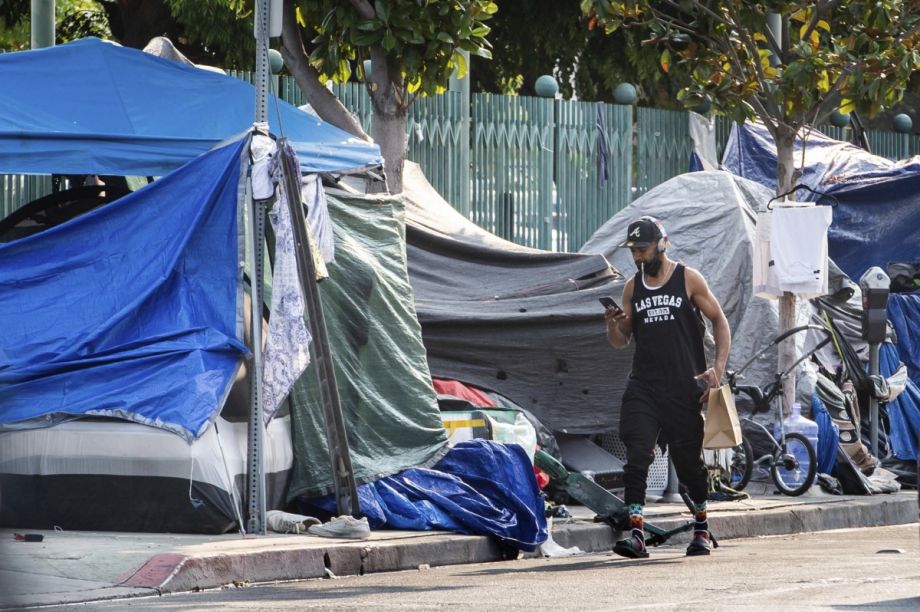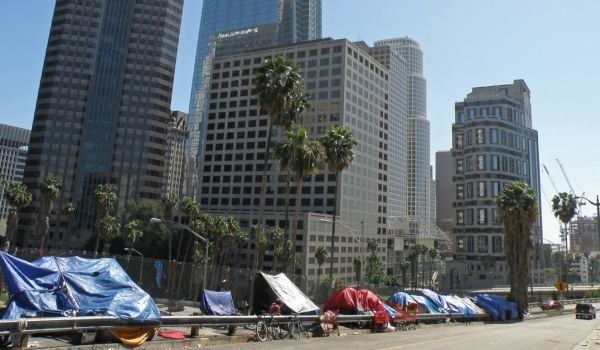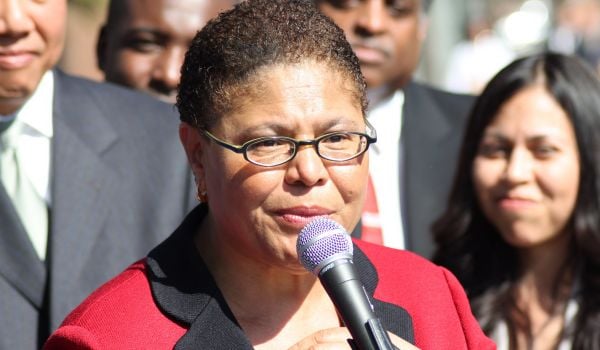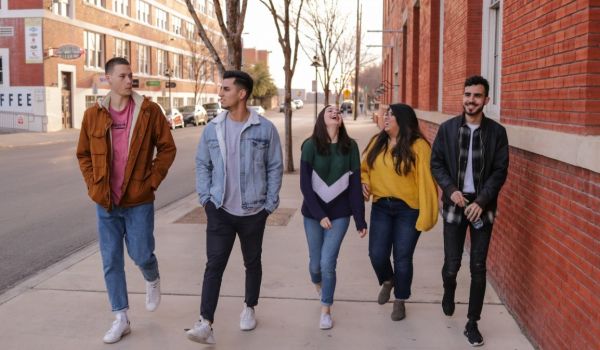A Pair of Reports Accuse California Officials Of Violating Rights of Unhoused Residents
A pair of reports out of California accuse the state of violating the law in its treatment of people experiencing homelessness. The ACLU of Southern California released “Outside The Law: The Legal War Against Unhoused People,” which cites an increase in ordinances from across the state that not only criminalize homelessness, but target humanitarian aid. The report discusses aggressive sweeps on homeless encampments in Los Angeles, banning RVs in Mountain View, and ordinances in Chico, Pacifica and Mountain View. The report is filled with disturbing stories, including people living along the Santa Ana River Trail in Orange County so desperate for water that they drink from drainage pipes. According to the report, “When residents fanned out to seek water, many local establishments and public organizations responded by hiring security guards, erecting fences, or shutting off water sources.”
In San Francisco, the Coalition on Homelessness released a detailed report on the city’s Healthy Streets Operating Center, which coordinates multiple city agencies to conduct sweeps on homeless encampments. The report found that despite the city’s claims, sweeps were frequently conducted even when there was not adequate space in city shelters for people who accept services, in violation of the law. People’s personal belongings were frequently discarded during these sweeps, in contradiction with the city’s stated policies.
The ACLU report recommends that California pass a law to stop discimination against people based on their unhoused status, end enforcement of anti-homelessness laws and create more affordable housing. The Coalition on Homelessness report recommends making shelters barrier-free, establishing regular trash pick up for places where unsheltered people are sleeping and living, and focusing on case management rather than responding to complaints.
Landlords Ended Up With Higher Cash Balances During Pandemic
An October report from JPMorgan Chase found that among 32,000 of its landlord clients, on average, landlords ended 2020 with more money than they started, despite losing some revenue. According to the report, “Landlords lost rental revenues, particularly early on during the pandemic, but cut expenses by more, resulting in higher balances.” The report suggests this is the result of CARES Act rental assistance, much of which went directly to landlords. The report only analyzed aggregate data and does not conclude which kinds of expenses were cut, but many housing advocates interpreted it to mean landlords cut corners with maintenance and repairs.
Tara Raghuveer, director of the Homes Guarantee Campaign, for instance, said on Twitter: “The hot take from JP Morgan is that landlord balances are higher because they “cut expenses.” Here’s what that means: they deferred mortgage payments and avoided maintenance. In other words, tenants still owed rent, accrued debt, and lived in worse conditions.”
NYC’s Rental Vouchers Fix “Income Cliff”
A boost in New York City’s CityFHEPS rental assistance vouchers was praised last summer as the vouchers had long lagged behind the cost of market rate apartments. But homeless advocates pointed out that the income threshold for remaining on the voucher was so low that it forced people to choose between earning a living wage and having housing. City Limits reports that a rule change allows voucher holders to continue to receive vouchers for five years if they’re making 80 percent of the city’s area median income, or $66,880 for an individual and $85,920 for a family of three. Those limits are up from $32,000 for a single adult and $55,000 for a family of three, according to City Limits. Next City reported on the increase to CityFHEPS vouchers last June.
New Report on NYC’s Basement Apartments Shows They Are Unevenly Clustered
In 2008, the Pratt Center for Community Development released a report showing the city had at least 100,000 units of informal basements, cellars and other ADUs used as living spaces. In a new report released last month, the center found that many of these units are in a cluster of BIPOC neighborhoods that have a high level of rent burden. The new study was undertaken in response to the impact of Hurricane Ida, which killed 13 people across Queens, 11 of whom lived in basement apartments. The Pratt Center is part of the BASE Coalition, which has been asking the city to legalize basement apartments by subsidizing safety improvements and changing zoning laws. In October, I reported on an NYC program to legalize basement apartments that went off track.
This article is part of Backyard, a newsletter exploring scalable solutions to make housing fairer, more affordable and more environmentally sustainable. Subscribe to our weekly Backyard newsletter.

Roshan Abraham is Next City's housing correspondent and a former Equitable Cities fellow. He is based in Queens. Follow him on Twitter at @roshantone.


















